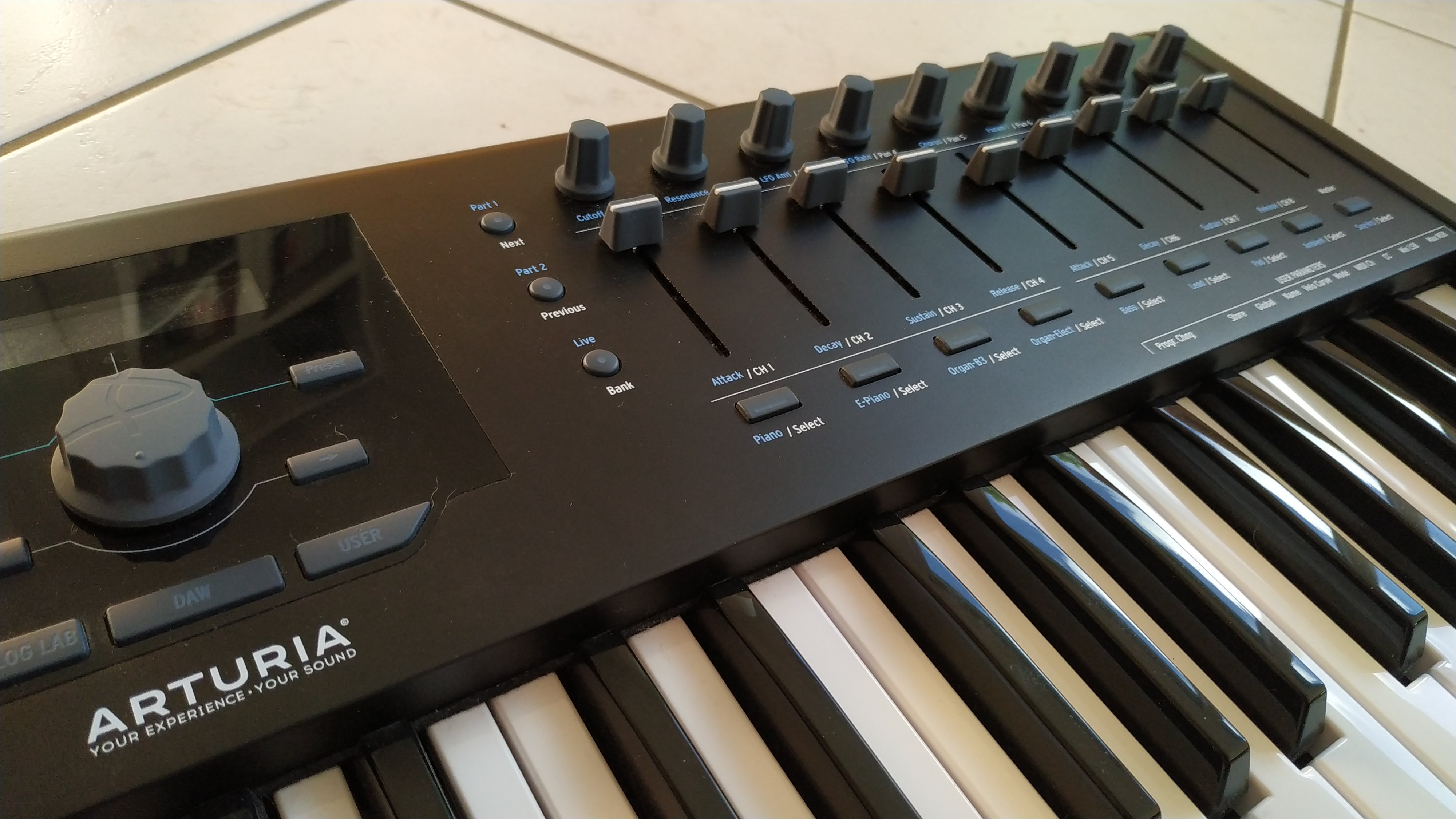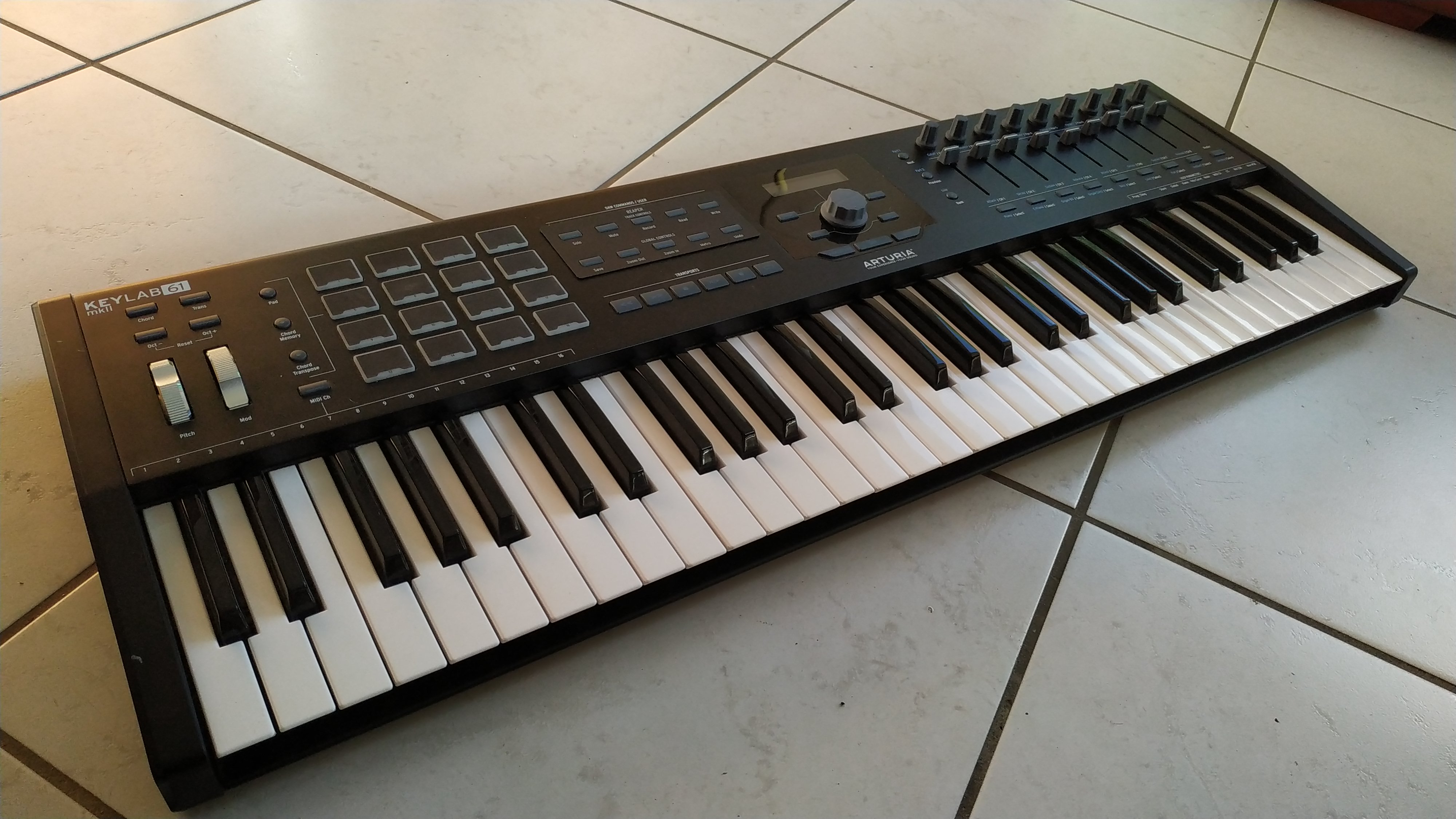



But being a class-compliant device makes this work with virtually any DAW or OS. It is designed to pair with popular DAWs like Cubase, Reason, Nuendo, Garageband, Sonar, Logic, Bitwig, Reaper, Studio One, and FL Studio. And it has your run-of-the-mill pitch bend wheel and 1/4” TS jack foot switch input that's also MIDI assignable. It also has Transpose up/down buttons with LED indicators, assignable to send Global MIDI Channel or Program). The Impact GX61 comes with octave up/down buttons with multi-colored LED indicators that show the exact status. And it has a MIDI assignable modulation wheel. It also has a large MIDI-assignable potentiometer knob (volume by default). These extras include 7 assignable buttons for controlling 14 MIDI functions with the shift button. Considering the extras you get and DAW transport controls, the value proposition is solid. But it is unreasonable to expect ultra-premium feel in this price range. Note that this soft playing feel may put off those who prefer action similar to acoustic pianos. It doesn't have much in the way of bells and whistles, but it provides what you'd expect in the price range.Īt its core is its decent synth-action keybed with 61 full-size velocity-sensitive keys. It provides essential keyboard functionality at a very good price point, with a few extras thrown in. The Nektar Impact GX61 is a simple and compact 61 key Keyboard MIDI controller. Small profile and lightweight - easy to transport and will fit most home studio setups.Class compliant - easy to set up and works with most DAWs and OSs right out of the box including iPad (Apple Camera Connection Kit Required).Pitch and MIDI assignable modulation wheel.Essential DAW functionality (DAW transport, octave/transpose controls) at a good price point.These are the top picks as dictated by the market and measured with our proprietary Gearank rating. So without further ado, here are the best 61 key keyboard picks for studio and live performances. The 61 key midi controller format offers a good in-between, having a wide note range while still being reasonably portable.

But they sacrifice portability and take up a lot of desk space. On the other side of the spectrum, classically trained pianists might prefer a full 88-Key MIDI Controller. Sure, you could go with a smaller 25-Key or 49-Key MIDI Controller but those might leave you wanting more. It offers a sweet spot of 5 octaves, capable of handling most contemporary popular music without craving for more range. The 61 key keyboard MIDI format is popular among music producers and multi-instrumentalists. They usually come with a slew of buttons, faders and knobs to streamline workflow. Along with your standard fare of piano keys, these useful instruments often double up as controllers.


 0 kommentar(er)
0 kommentar(er)
